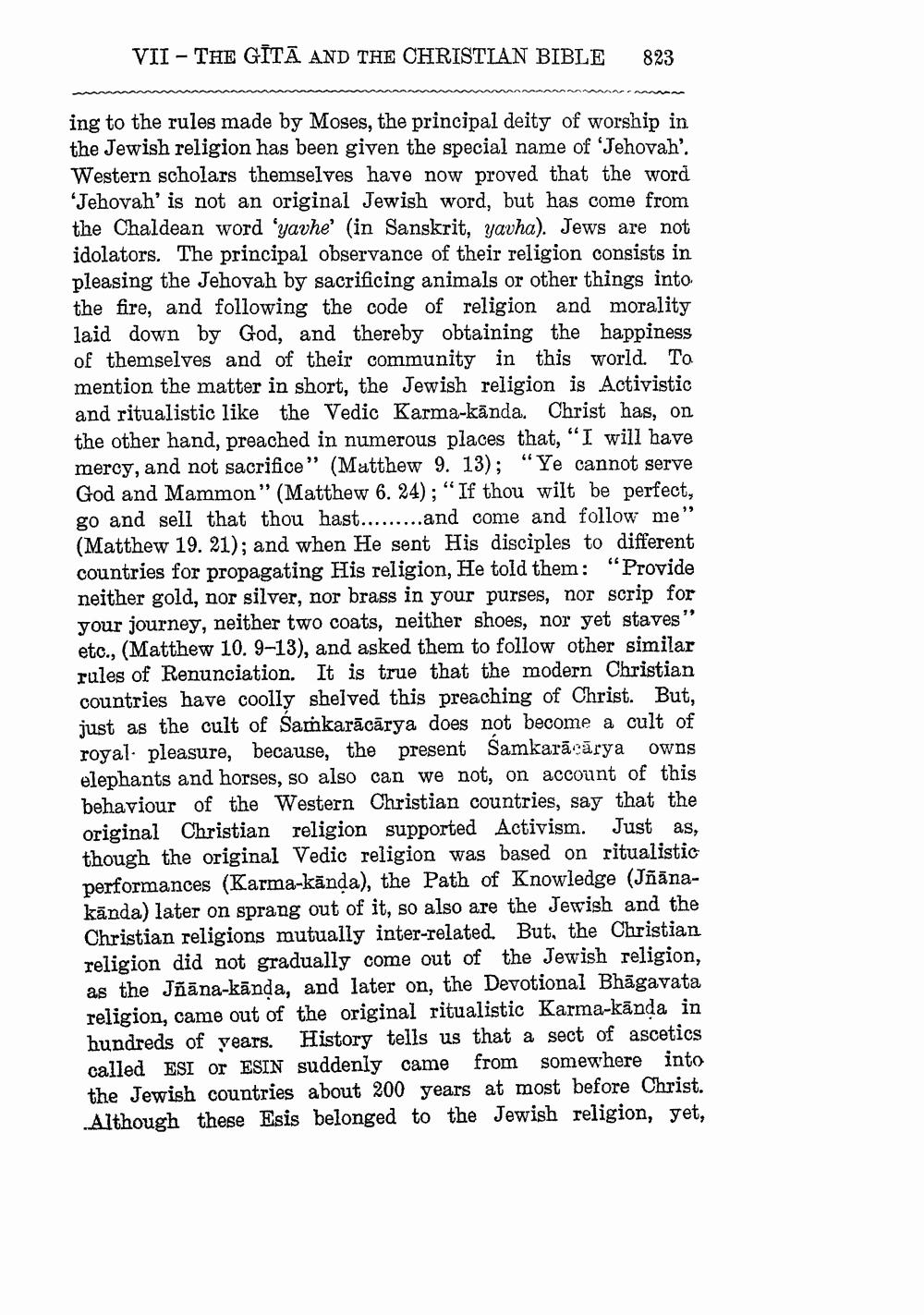________________
VII - THE GITĀ AND THE CHRISTIAN BIBLE
823
ing to the rules made by Moses, the principal deity of worship in the Jewish religion has been given the special name of Jehovah'. Western scholars themselves have now proved that the word 'Jehovah' is not an original Jewish word, but has come from the Chaldean word 'yavhe' in Sanskrit, yavha). Jews are not idolators. The principal observance of their religion consists in pleasing the Jehovah by sacrificing animals or other things into the fire, and following the code of religion and morality laid down by God, and thereby obtaining the happiness of themselves and of their community in this world. To mention the matter in short, the Jewish religion is Activistic and ritualistic like the Vedic Karma-kānda. Christ has, on the other hand, preached in numerous places that, “I will have mercy, and not sacrifice" (Matthew 9. 13); “Ye cannot serve God and Mammon" (Matthew 6. 24); “If thou wilt be perfect, go and sell that thou hast.........and come and follow me" (Matthew 19. 21); and when He sent His disciples to different countries for propagating His religion, He told them: "Provide neither gold, nor silver, nor brass in your purses, nor scrip for your journey, neither two coats, neither shoes, nor yet staves" etc., (Matthew 10. 9-13), and asked them to follow other similar rules of Renunciation. It is true that the modern Christian countries have coolly shelved this preaching of Christ. But, just as the cult of Samkarācārya does not become a cult of royal pleasure, because, the present Samkarācārya owns elephants and horses, so also can we not, on account of this behaviour of the Western Christian countries, say that the original Christian religion supported Activism. Just as, though the original Vedic religion was based on ritualistic performances (Karma-kānda), the Path of Knowledge (Iñānakānda) later on sprang out of it, so also are the Jewish and the Christian religions mutually inter-related. But, the Christian religion did not gradually come out of the Jewish religion, as the Jñāna-kānda, and later on, the Devotional Bhāgavata religion, came out of the original ritualistic Karma-kända in hundreds of years. History tells us that a sect of ascetics called ESI or ESIN suddenly came from somewhere into the Jewish countries about 200 years at most before Christ. Although these Esis belonged to the Jewish religion, yet,




